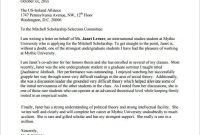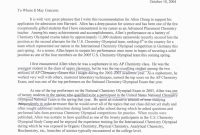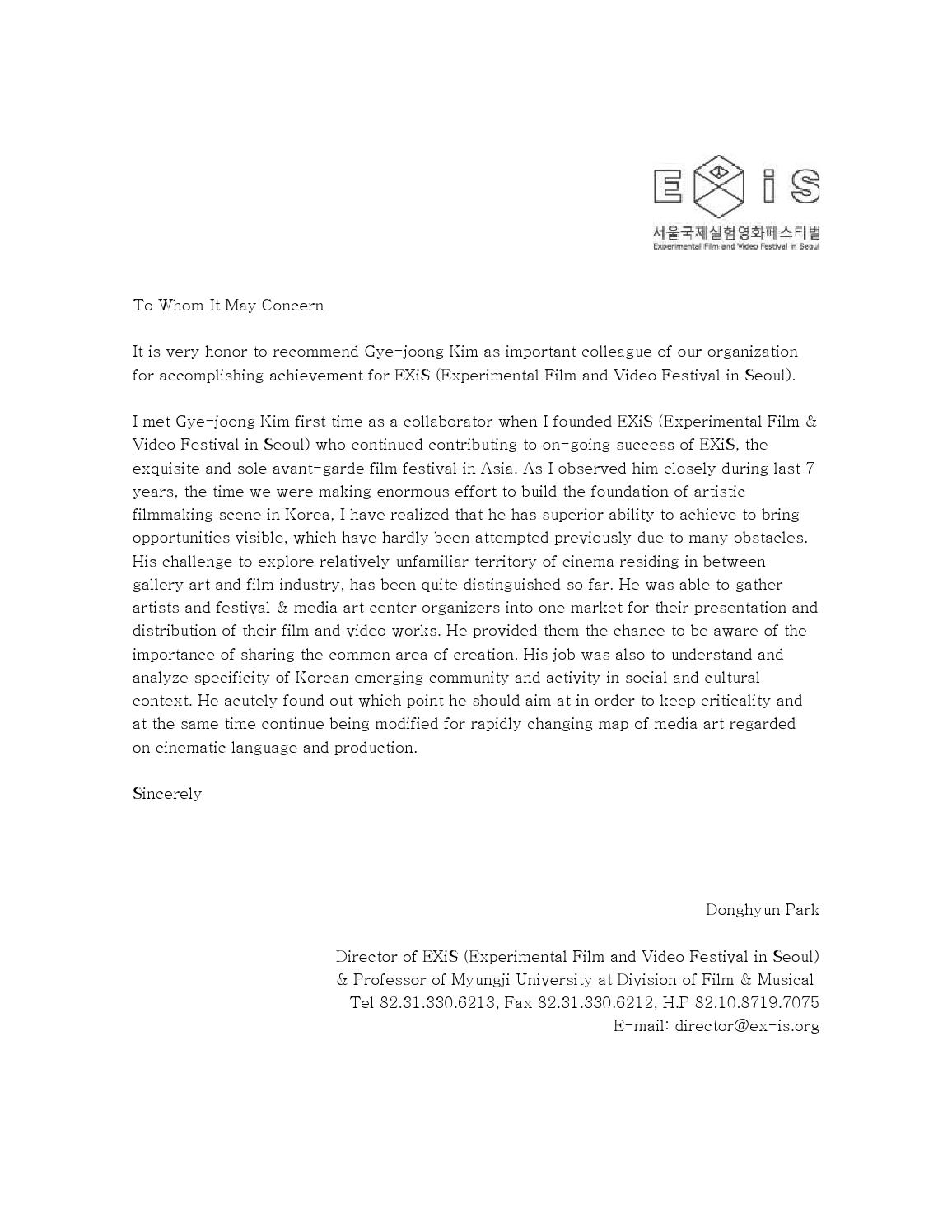 Sample Recommendation Letter For Eb1a Akali with sizing 1156 X 1496
Sample Recommendation Letter For Eb1a Akali with sizing 1156 X 1496Understanding the Role of Recommendation Letters in EB-1 Applications
Recommendation letters play a critical role in EB-1 visa applications. They are used by the U.S. Citizenship and Immigration Services (USCIS) to assess an applicant’s qualifications and to determine whether they meet the requirements for extraordinary ability. Recommendation letters should provide specific and detailed information about the applicant’s work, accomplishments, and contributions to their field. They should also be written by individuals familiar with the applicant’s work who can speak to their qualifications and achievements.
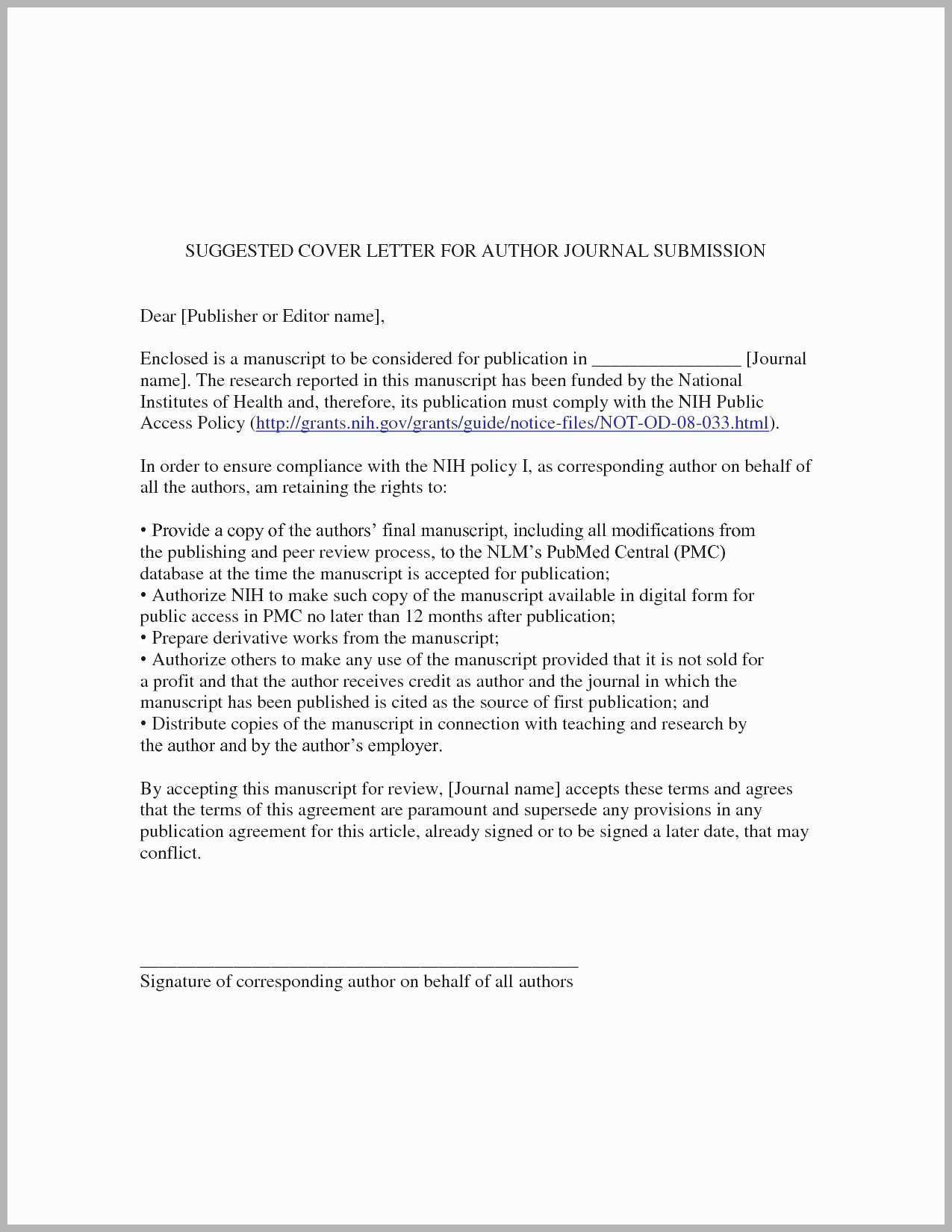 Eb1 Recommendation Letter Sample Akali inside size 1275 X 1650
Eb1 Recommendation Letter Sample Akali inside size 1275 X 1650Key Components of an Effective EB-1 Recommendation Letter
Several key components should be included in an effective EB-1 recommendation letter. These include:
- The qualifications of the recommender: The recommender should be someone familiar with the applicant’s work and who can speak to their qualifications and achievements. The recommender should also have relevant expertise in the applicant’s field.
- Testimonials from experts: The recommendation letter should include expert testimonials that attest to the applicant’s extraordinary ability. These testimonials should be specific and detailed, highlighting the applicant’s unique abilities and contributions to their field.
- Substantive information on the applicant: The recommendation letter should provide substantive information about the applicant’s work, accomplishments, and contributions to their field. This information should be specific, detailed, and relevant to the applicant’s expertise.
- Criteria for extraordinary ability: The recommendation letter should be aligned with the regulatory criteria for extraordinary ability. The letter should specifically address how the applicant meets each of the criteria, and it should provide evidence to support the applicant’s claims.
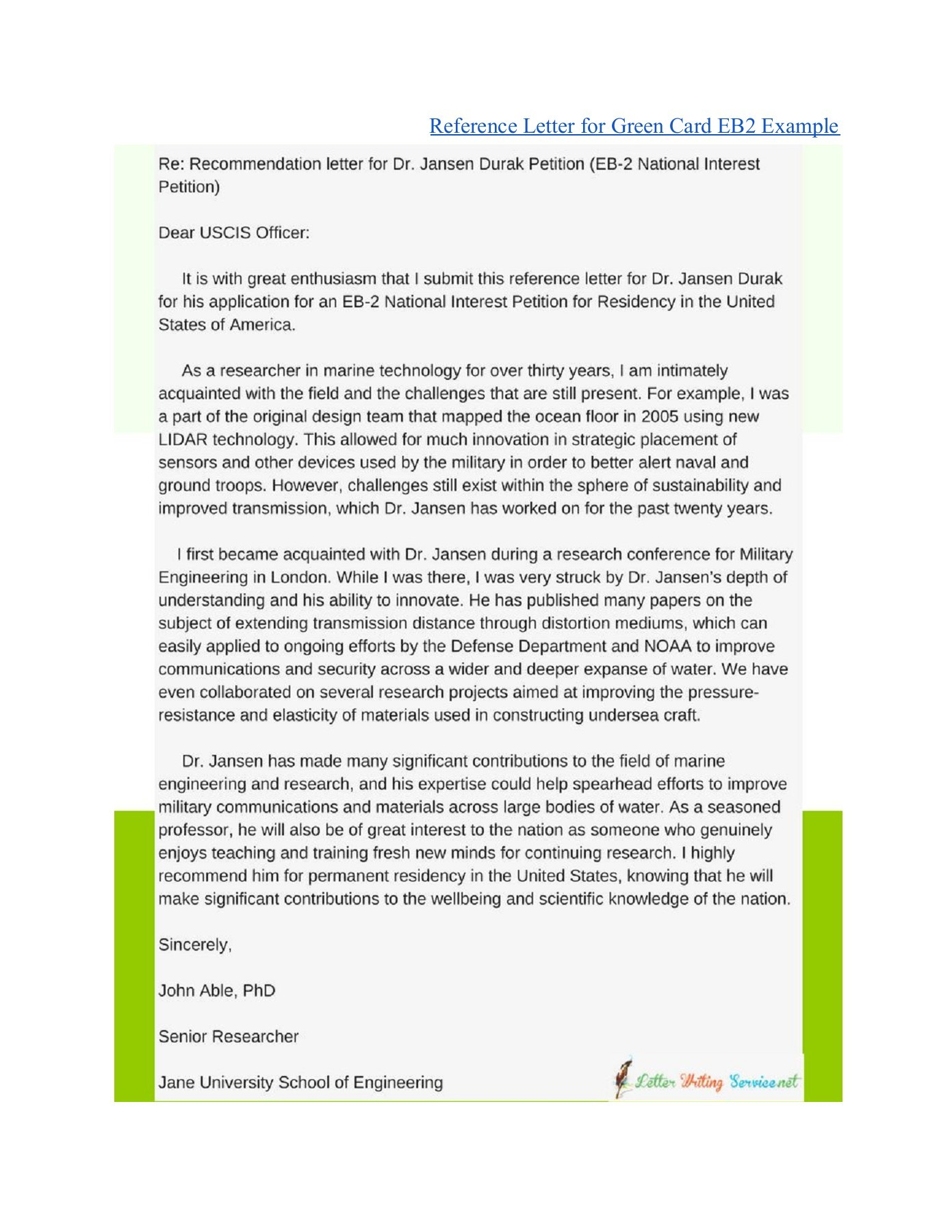 Best Letter Samples For Emigration Flip Book Pages 1 5 inside dimensions 1391 X 1800
Best Letter Samples For Emigration Flip Book Pages 1 5 inside dimensions 1391 X 1800The Ideal Number of Recommendation Letters
The USCIS does not specify a minimum or maximum number of recommendation letters that must be submitted with an EB-1 visa application. However, it is generally recommended that applicants submit at least three letters. This will give the USCIS a more comprehensive view of the applicant’s qualifications and achievements.
Avoiding Common Pitfalls in EB-1 Applications
There are a few common pitfalls that applicants should avoid when submitting an EB-1 visa application. These include:
- Filing without significant improvement after a rejected petition: If an applicant’s EB-1 visa petition is rejected, they should not simply file the same petition again without making any changes. Instead, they should take the time to address the reasons for the rejection and to make significant improvements to their application.
- Relying on templates: It is important to individualize each recommendation letter rather than relying on templates. This will ensure the letter is tailored to the specific applicant and their qualifications.
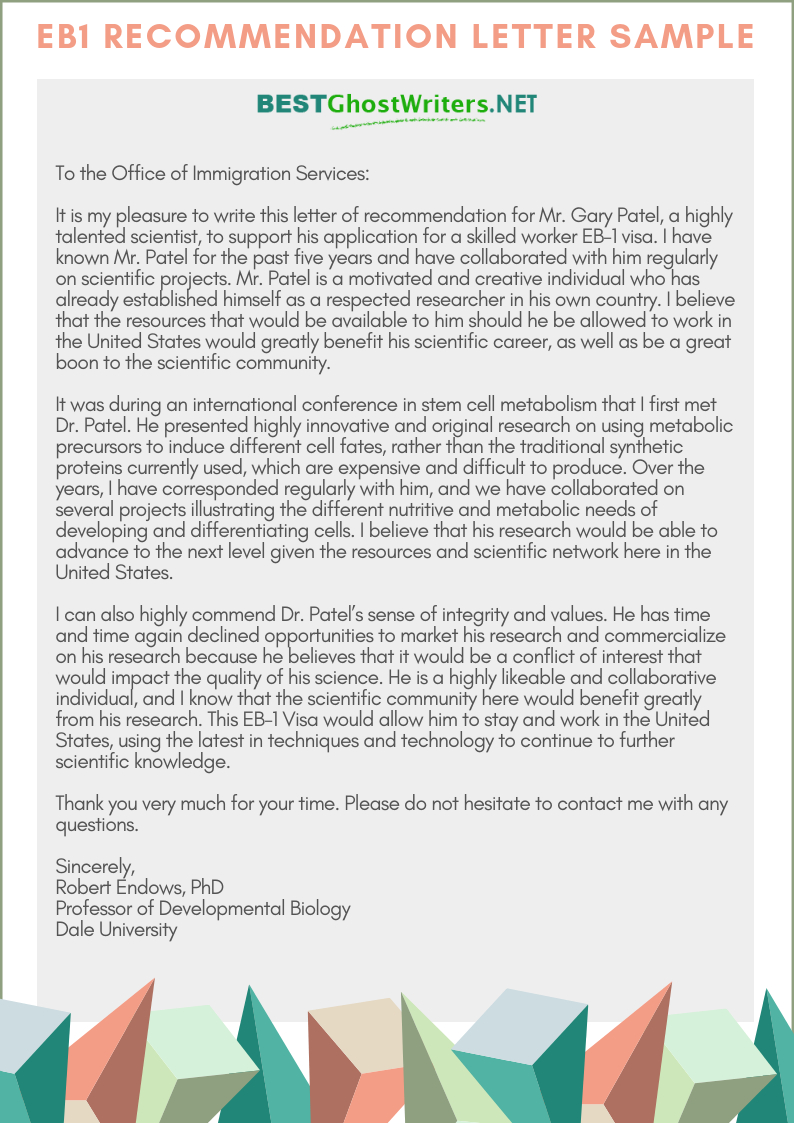 Eb1 Recommendation Letter Sample Akali in size 794 X 1123
Eb1 Recommendation Letter Sample Akali in size 794 X 1123Conclusion
Well-crafted recommendation letters are essential for a successful EB-1 visa application. Following the tips in this article, applicants can increase their chances of obtaining an EB-1 visa and moving to the United States.
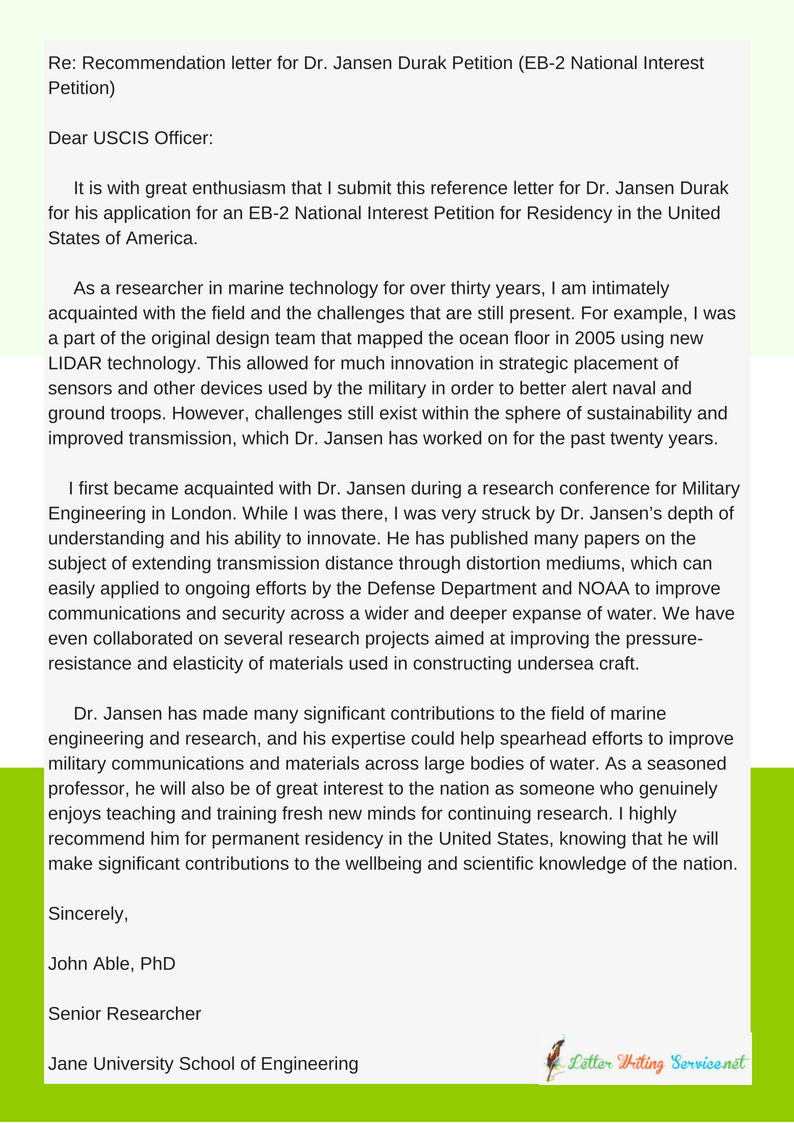 Reference Letter For Green Card Eb2 Example Album On Imgur for proportions 794 X 1123
Reference Letter For Green Card Eb2 Example Album On Imgur for proportions 794 X 1123Final Thoughts and Advice
If you are considering applying for an EB-1 visa, it is important to consult with an immigration attorney. An experienced attorney can help you to understand the requirements for extraordinary ability and to prepare a strong application. They can also help you to avoid common pitfalls and to increase your chances of success.
